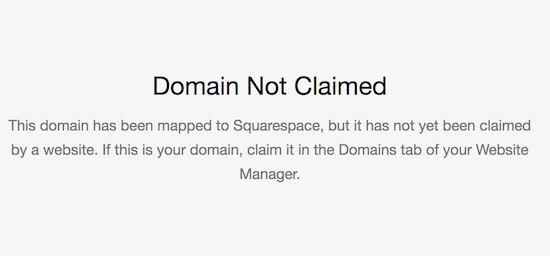TechCrunch published an article about a venture capital firm’s aim to raise $140 million for its third investment fund. The firm is called A.Capital Partners. TechCrunch tweeted about the company and its news, and you can see how the company’s branding is displayed on social media:
https://t.co/swd8Qs9rnE Partners, founded by Ronny Conway, targets $140 million for its third fund https://t.co/huI4q2yNPV by @cookie pic.twitter.com/4ww3GS8SHM
— TechCrunch (@TechCrunch) August 9, 2019
If you click the A.Capital hyperlink, you won’t end up on the A.Capital Partners website. Strangely, A.Capital is the branding for the VC firm, but the matching A.Capital domain name appears to be owned by a third party. The VC firm uses the ACapital.com domain name for its website.
Here’s the error message I saw when I clicked through on the Twitter post to the hyperlinked A.Capital domain name:

I think the VC firm is somewhat lucky the A.Capital domain name is not being used by a third party. The registrant of that domain name could easily use that domain name to harvest email addresses or in some other nefarious way. It’s an added risk.
I think the lesson to be learned here is that if you are going to use a “.” in your company name, you need to make sure the word after the dot is not a domain name extension. If the .word is a domain name extension, it could be confusing to people who see the business name, and it will definitely become a hyperlink in social media. If someone else owns that other domain name, any traffic from social media will end up on a different website and possibly confuse visitors. Booking.com has used Booking.Yeah as a marketing tagline, but there is no .Yeah extension so it’s no big deal.
The .word may seem like a somewhat unique branding move, but it could backfire when people start clicking the hyperlink in social media and end up elsewhere.



>I think the lesson to be learned here is that if you are going to use a “.” in your company name,
> you need to make sure the word after the dot is not a domain name extension
For hyperlinking it’s far worse than just establish company names getting “webified” due to a newGTLD extension, almost anything after a dot can be interpreted as a URL
e.g.
a sentence starting with Men or Loan or Click or 1000-others if following a full-stop, will point at the (mostly spammy) tlds, “accidentally”
Once a few high-profile tweets start landing on P0rn or Phishing pages, hopefully the auto-hyperlinking will get dropped [ we can only hope !] as a necessary step to protect the user.